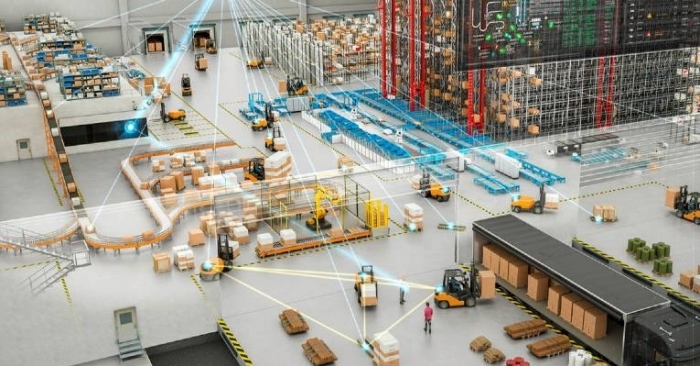Are cobots the next wave of warehouse automation?
Collaborative Robots or Cobots, are currently facing its boom period leveraging its easy configuration and app-based controls. Neeraj Sharma of Addverb Technologies is writing why cobots will play a big role in the development of the fourth industrial revolution and the industrial Internet of Things

Robots are being used in the space of Industrial automation since a decade back and have undergone several updates during this period. Collaborative Robots or Cobots, are currently facing its boom period leveraging its easy configuration and app-based controls. Neeraj Sharma of Addverb Technologies is writing why cobots will play a big role in the development of the fourth industrial revolution and the industrial Internet of Things.
Invented in 1996, cobots have just started making an impact on various industries across the globe. These robots unlock the way to Industrial automation for almost every size of business. It is renowned as one of the cost-effective automation solutions which will work alongside humans, enhancing their capacities and simultaneously building their skills.
What is inside?
Cobots have built-in safety mechanism including power and force limiting technologies which make them safe to collaborate with human operators. Cobots are fashioned with inherent safety features like force feedback and collision detection. Hence, they are more precise, powerful and collaborative and take lesser time to deploy as compared to their conventional and bulky counterparts. For companies with seasonal demands, dynamic product lines or multiple processes can opt for cobots which can also be moved between different tasks.
They are equipped with sensors, smart technologies and systems which are linked with Industrial IoT solutions and specific systems. For the purpose of distance sensing, cobots are in-built with vision or radar sensors. This helps them to implement speed and separation monitoring. Non-ergonomic workstations can be greatly improved with the help of robots. Cobots are enabled with verbal command functions and incorporate voice interpretation.
Market speaks
As per BIS Research, by 2021, the collaborative-robot market is expected to grow to approximately $2 billion and 150,000 units. Several other industries are also looking towards cobots as a way of introducing the new warehouse and intralogistics automation future.
How do they add value?
Many businesses which are at their nascent stage of Industrial automation can see cobots as their tool to take their next step towards automation. One of the major benefits of cobots is its built with easy programming that allows even an inexperienced user to learn the process by simply moving the robotic arm to the desired waypoint and using a touchscreen to set the required actions. It involves a user-friendly software and mobile applications for the cobot to learn new actions on the go by leveraging the capabilities of artificial intelligence. By using a cobot, the programming can be performed on one unit and can be copied to others, making it quickly redeployable to different processes. This also includes a much lesser cost than traditional robots and generate a better ROI. As already mentioned, it provides safe collaboration to work alongside humans, providing the worker with an extra set of hands. Unlike cobots, the guarding and safety mechanism of traditional robots is bulky and expensive. Cobots are lightweight and easily movable to different places as well as different tasks. They are more consistent and accurate than humans and hence the errors are minimized in the operations.
Cobots play a big role in the development of Industry 4.0 and the Industrial Internet of Things. These days cobots area being used for various tasks such as pick and place, finishing tasks, process tasks (which requires a tool to interact with a workpiece), packaging and palletizing, quality inspection etc. Right now, we are at a tipping point whereby there aren’t too many hurdles anymore to leverage this technology. We may count it as day 0 when cobots will transform the trends in the automation sphere and will realize the implementations of Industry 4.0.
 | Neeraj Sharma is the co-founder of Addverb Technologies |
The views and opinions expressed in this article are those of the author and do not necessarily reflect the views of Indian Transport & Logistics News




